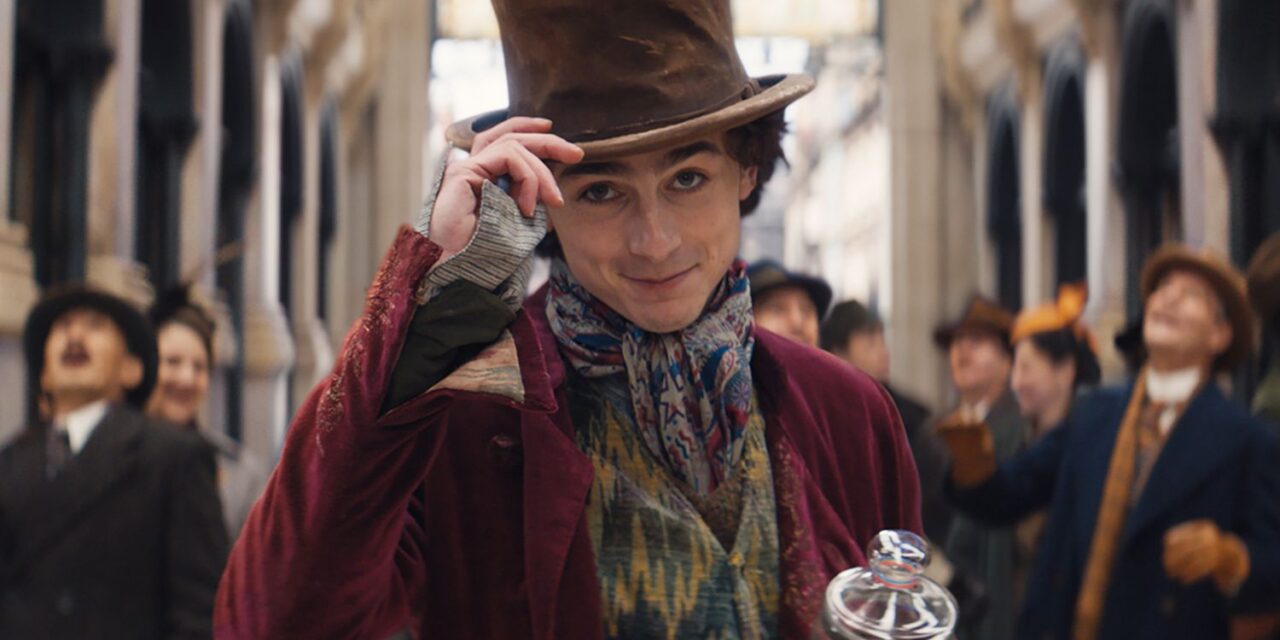News broke on Monday morning that Wonka, the fantastical musical that opened Friday, enjoyed a strong first weekend at the box office with a $39 million take. Coupled with $112 million made globally the past week, the $151 million bottom line is surprisingly good for a film that cost $125 million to produce.
Starring Timothée Chalamet as a young Willie Wonka, the entertaining story explains how the famous fictional chocolatier got his start in the business. Many of a certain age will remember enjoying the first movie in the franchise, Willie Wonka and the Chocolate Factory. That film, starring Gene Wilder, debuted in 1971 and was based on British author Roald Dahl’s children’s classic, Charlie and the Chocolate Factory.
Dahl, who died in 1990, was in the news earlier this year after his publisher and organization edited numerous sections of the book. Changes included a character going from “fat” to “enormous” and a woman no longer described as being “ugly” but instead “beastly.”
It’s always challenging to apply modern sensibilities to creative endeavors from another generation. But when it comes to the Wonka storyline, mothers and fathers don’t have to spend time navigating any of these concerns.
Our own Plugged In team described the film as a “sweet treat” – high praise from a squad who watches every project with a deliberately discerning eye.
We learn throughout the course of the movie that Willie’s mother apparently once told him, “Every good thing in this world started with a dream.” The same inspirational adage might be said about the screenwriters who crafted the script. What’s especially refreshing about the movie is its wildly creative and imaginative plot lines, its colorful scenery, and its dramatic situations. The tunes are also catchy and enjoyable.
Over the years, many parents have lamented the loss of the “family film” – that entity that appeals to both the young and the old. Once upon a time, Walt Disney commanded this space. Whether it was his weekly television program or his full length features on the big screen, a mother and father who took their children to watch weren’t bored or embarrassed.
“We think of the family audience,” reflected Walt Disney. “Mickey Mouse would not have been the success he was were it not for the broad appeal. We are not playing just for kids. If you took your kids to the movies and left them there to be picked up later and did not go in yourself, I’d feel unhappy. After all, if you are aiming at the kids, what age would you aim at?”
Despite many opportunities to insert “woke” storylines into Wonka, its writers and producers resisted. There isn’t any same sex attracted characters. Any romance is heterosexual. The bullies are the bad guys. Children look out for one another. The main characters do encounter and uncover corruption within certain members of the local Catholic clergy, but there’s no indication or hint that it reflects the broader faithful.
Walking out of the film with our three boys, my wife and I didn’t feel burdened to try and explain or contextualize any problematic content. It had been a fun and entertaining couple of hours. We laughed about the “Oompa Loompa” played perfectly by Hugh Grant. We talked about the good overcoming the evil. Maybe the only thing we regretted was the fact that none of the magical chocolate creations featured in the movie were available for purchase.
In the end, the movie reminded me of family films from another era, only better thanks to improved special effects. Before we had even arrived home, my wife had already downloaded several of the movie’s toe-tapping songs and was playing them in the car.
Let’s hope Hollywood is listening and that, thanks to the success of Wonka they’ll be more family-friendly fare in the future. In the words of our great Plugged In team, that would be a sweet treat, indeed.
Image credit: Wonka/Warner Bros Pictures






